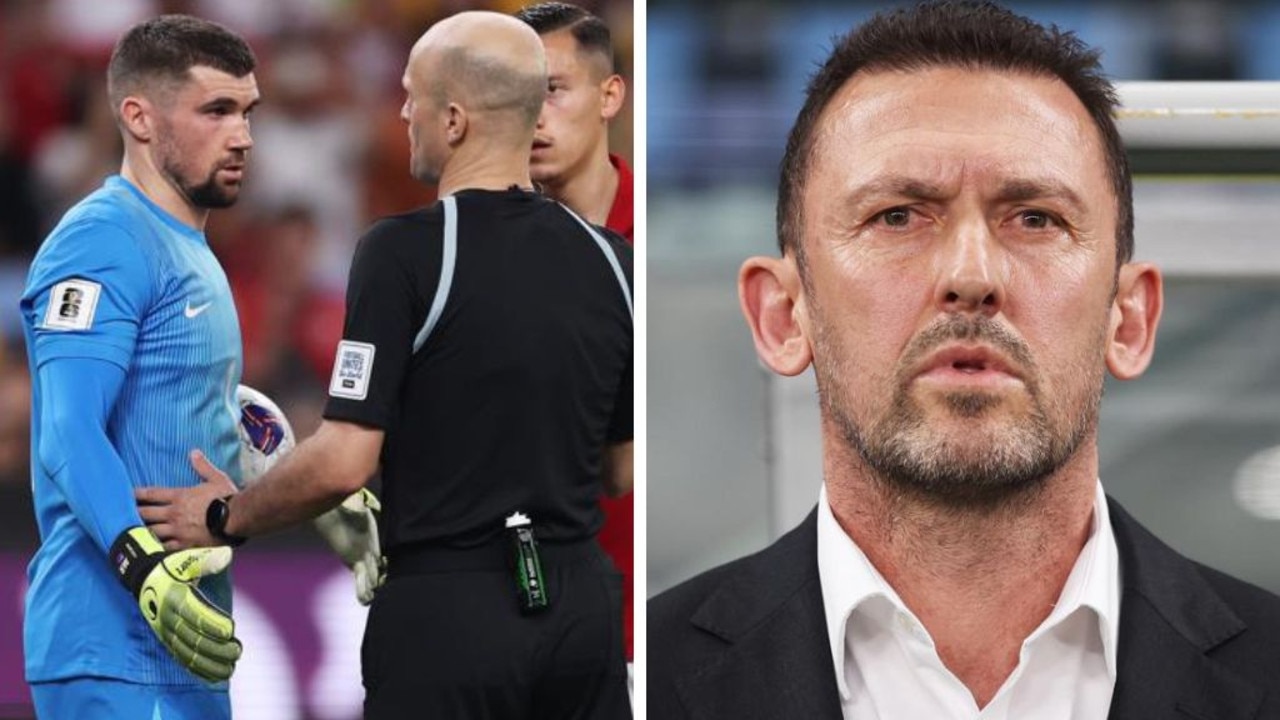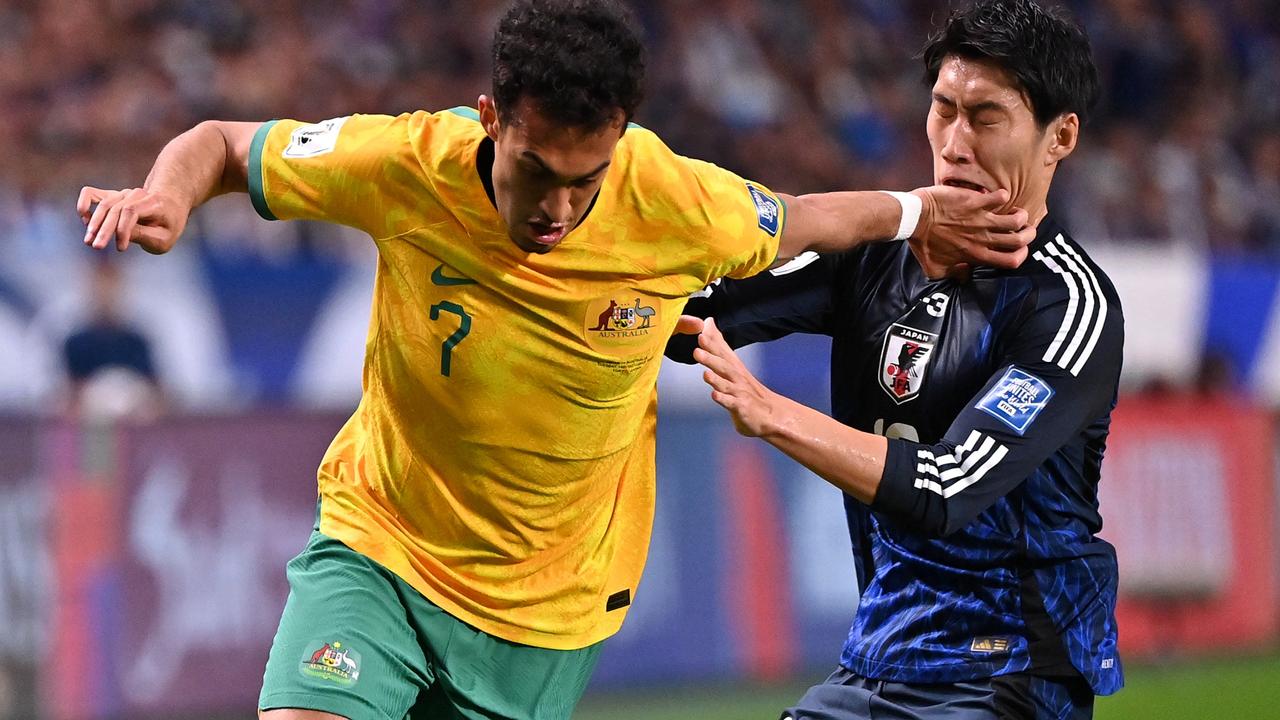Spanish football association has two-word dig at players amid coaching controversy
Spain’s national football federation have come under fire for a stinging two-word rebuke of players who protested their coach.

The Royal Spanish Football Federation (Real Federación Española de Fútbol or RFEF) have come under fire for a stinging rebuke of their striking players amid the ecstasy of the country’s maiden Women’s World Cup victory in Sydney.
The 1-0 win, which makes Spain the second nation to win both Men’s and Women’s FIFA World Cups, was led by controversial coach Jorge Vilda, whose tenure as coach over the past year has been dogged by allegations of mismanagement.
As the celebrations rang out at Stadium Australia in a sea of confetti, with Don Omar’s 2010 reggaeton hit “Danza Kuduro” blasting through the stadium speakers, the RFEF took to social media, posting a photograph of Vilda kissing the trophy to Twitter alongside a blunt caption.
“VILDA IN,” the post read, in a shot at the striking players that had questioned his position and alleged mismanagement.
With Vilda’s position under fire amid allegations from players of toxic behaviour, the tweet sent a clear message of support for the 42-year-old coach.
â˜ï¸ ð—©ð—œð—Ÿð——ð—” ð—œð—¡. pic.twitter.com/qmOJbNhAID
— Selección Española Femenina de Fútbol (@SEFutbolFem) August 20, 2023
ESPN’s Caitlin Murray called the post “gross”, saying that it spoke to the culture of the organisation, who have consistently backed Vilda throughout his tenure.
“Given that he’s been accused of abusive and toxic behaviour, prompting 12 players to refuse Spanish national team call-ups, this is pretty gross,” Murray wrote.
“Shows a lot about the culture within RFEF.
“When the whistle blew, I couldn’t help but think of those players. My heart breaks for them.”
GiveMeSport editor Nancy Gillen said Spanish players had given up a World Cup because of Vilda, and the Federation should be treating the situation with more gravity.
“It’s so disheartening to see RFEF already using the win to validate abusive behaviour,” Gillen said.
“Solidarity with the players who have sacrificed this moment because of that.”
Vilda has maintained he has no desire to step down, telling press he would do it all again after the final, and he has been consistently backed by the RFEF – the head of the RFEF’s women’s football department is Vilda’s father, Angel.
“I’ve always said that if all the suffering was necessary to become world champions, it would be worth it,” Vilda told press.
“It’s been difficult at a personal level in management, but on a sporting level, we’ve achieved results that we’ve never achieved before.
“I am very happy that we are champions of the world.”
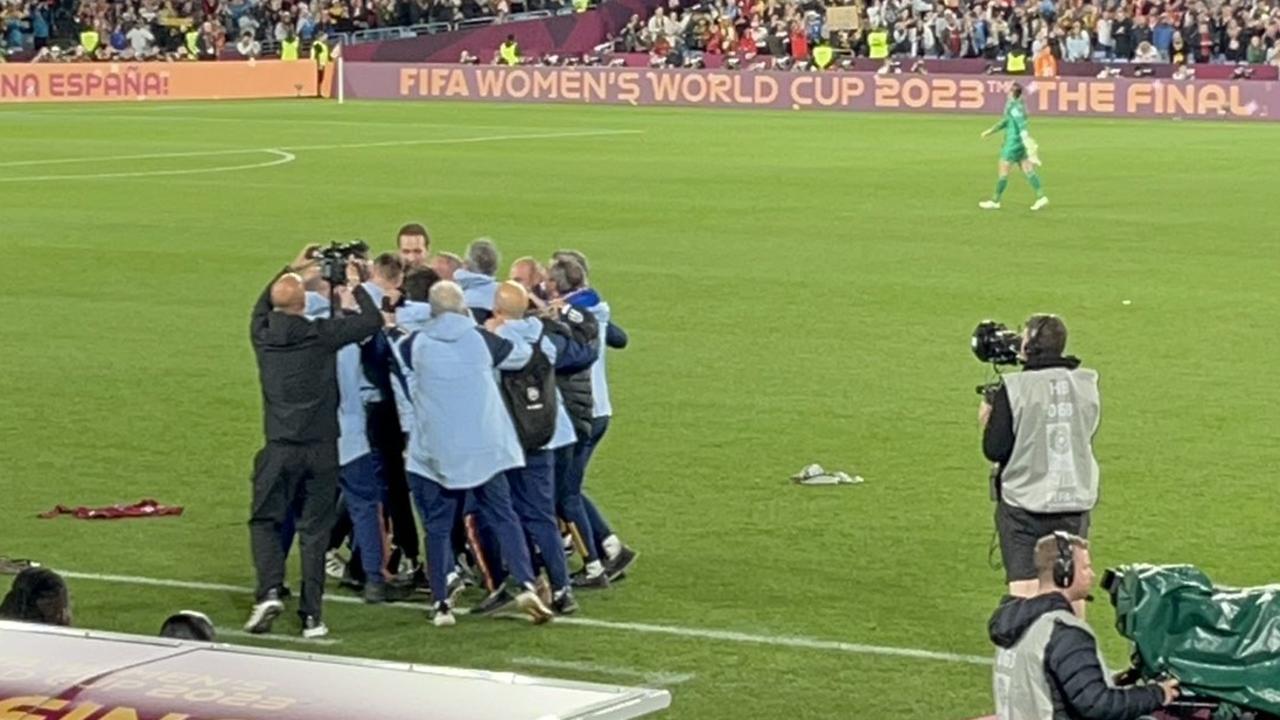
In the immediate post-match aftermath, Vilda was seen celebrating with his coaching staff, while the players notably celebrated on their own, on the other side of the pitch, in a symbolic representation of the divide between players and association at what should be a unifying moment for the country.
The controversy comes as the Federation deals with the inevitable outcomes domestically with having left out a number of top players who remain on strike ahead of qualifying for the 2024 Paris Olympics, as well as the dynamics between players who broke ranks to represent the nation at a World Cup.
In September 2022, fifteen members of the team sent emails of resignation, referring to recent developments in the Spanish team that “significantly” impacted on their “emotional state and health” after their disappointing quarterfinal exit from the European Championships.
“I inform you that the events that have occurred and the situation that has arisen in the Spanish national team, a situation of which you are aware, are having an important effect on my emotional state, and by extension my health,” the emails read.
“As a result, I do not currently consider myself to be in a condition to be chosen for the national team, and I ask not to be called up until the situation is resolved.”
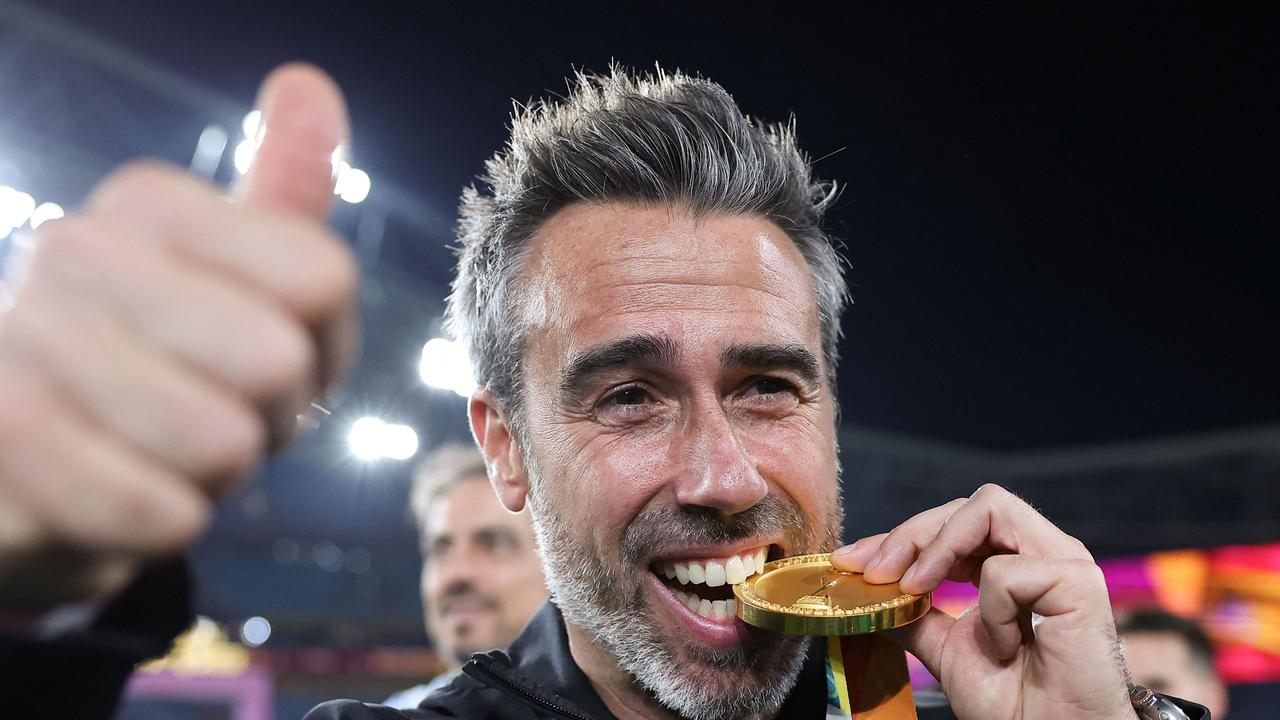
The striking players became known as ‘Las 15’, and the letter, sent privately to the RFEF, was leaked, with the Federation blasting the players in a blunt statement.
“The RFEF is not going to allow the players to question the continuity of the national coach and his coaching staff, since making those decisions does not fall within their powers,” the statement said.
“The Federation will not admit any type of pressure from any player when adopting sports measures. These types of manoeuvres are far from exemplary and outside the values ​​of football and sport and are harmful.”
The Federation went on to threaten players with bans of up to five years, and claimed that the situation was “an unprecedented situation in the history of football, both male and female, in Spain and worldwide.”
The situation is in fact not unprecedented, with the Matildas going on strike in 2015.
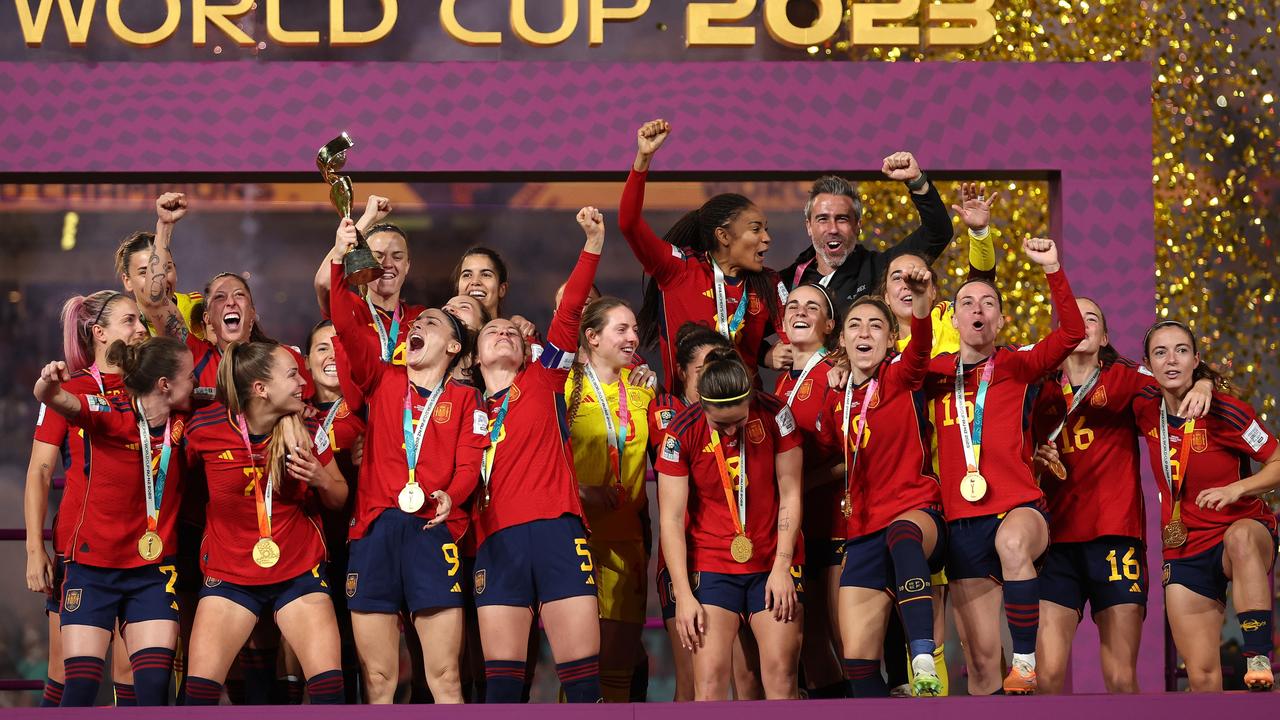
Supported by the players’ union, the two-month long strike successfully won improvements in pay and working conditions, which a number of players credit with the side’s ongoing success.
Vilda is reportedly alleged to have created a controlling environment of power imbalances, favouritism, intimidation and stress, with the country’s all-time leading goalscorer, Jenni Hermoso, on one occasion leaving training in tears.
One allegation is that Vilda forced his players (some of whom he has coached continuously since the age of 16) to leave their bedroom doors open so he could enforce curfews, as well as checking the contents of their bags upon returning from days out.
Vilda had also been criticised for his management of player loads, his training methods and tactics, and that he had not won a major trophy in almost a decade of management.
Spain now look to the UEFA Women’s Nations League A, the winner and runner’s up of which will qualify for the Paris Olympics in 2024.
They begin their campaign against Sweden on September 22.





